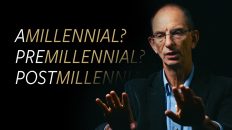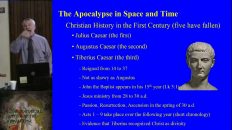1 Thes 5:1-8. But concerning the times and the seasons, brethren, you have no need that I should write to you. For you yourselves know perfectly that the day of the Lord so comes as a thief in the night. For when they say, “Peace and safety!” then sudden destruction comes upon them, as labor pains upon a pregnant woman. And they shall not escape.
But you, brethren, are not in darkness, so that this Day should overtake you as a thief. You are all sons of light and sons of the day. We are not of the night nor of darkness. Therefore let us not sleep, as others [do], but let us watch and be sober. For For those who sleep, sleep at night, and those who get drunk are drunk at night. But let us who are of the day be sober, putting on the breastplate of faith and love, and [as] a helmet the hope of salvation.
Rev 3:2-3. “Be watchful, and strengthen the things which remain, that are ready to die, for I have not found your works perfect before God. Remember therefore how you have received and heard; hold fast and repent. Therefore if you will not watch, I will come upon you as a thief, and you will not know what hour I will come upon you.
the coming of messiah in glory and magesty

Lacunza believed that he had made some “new discoveries, real, solid, undeniable, and of the greatest importance” for the discipline of theology.
The first of these “new discoveries” was that the end of the world would not be an instantaneous destruction of God’s creation. He denied “that the world – that is, the material bodies or celestial globes that God has created (among which is the one on which we live) – has to have an end or return to chaos or nothingness … This idea is not found often in Scripture before the opposite idea is stated and I agree with the best interpreters.”
On the other hand, the “end of the world” was marked by the resurrection of the dead and the Last Judgement, which Lacunza understood involved a transmutation of the physical world to the plane of the eternal. This event would take place after the thousand years of Christ’s earthly kingdom.
Secondly, Lacunza concluded that the Biblical expressions “end of the age” and “end of the world” refer to two different times. He understood the “end of the age” or “day of the Lord” as merely the end of a phase of human history that would be closed by the coming of Christ and the beginning of His kingdom on Earth. At this time the living would be judged and the Jews converted, after which a new society would be established for a thousand-year reign of justice and peace.
Lacunza believed – based on his reading of Bible prophecy – that during the period before the “day of the Lord” there would be a general apostasy of the Catholic Church which would make it part of the Antichrist. In this sense “the church” was not individuals, but “a moral body” composed of all the apostates and atheists. Naturally this view was especially controversial because it placed the official church on the wrong side in the final struggle between Good and Evil. It was this belief that finally brought about the Vatican’s condemnation of his work.
On the other hand, the “end of the world” was marked by the resurrection of the dead and the Last Judgement, which Lacunza understood involved a transmutation of the physical world to the plane of the eternal. This event would take place after the thousand years of Christ’s earthly kingdom.

























